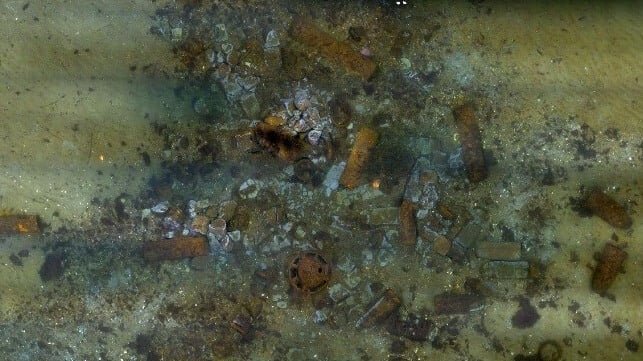German Government Initiative Targets Cleanup of Decaying Ammunition in Baltic Sea
Sponsored by a German government environmental program, a Baltic Sea diving and salvage company has begun an extended trial of new techniques to clean up decaying ammunition from the seabed. Germany faces a critical issue as aging munitions in its coastal waters are starting to leak toxins, posing a threat to marine life and potentially entering the human food supply chain.
The roots of the problem trace back to World War II when Germany produced millions of explosive devices. Following the war, around 1.6 million tonnes of grenades, shells, bombs, and rockets were disposed of in the Baltic and North Sea. This hasty disposal method, while cost-effective at the time, lacked environmental considerations and has now become an environmental concern.
Decades later, these underwater dumping grounds are resurfacing as a pressing issue for German authorities. In the Baltic Sea, slow seawater exchange exacerbates the problem, with aging explosive devices leaking TNT into the water. TNT poses health risks, including potential carcinogenic effects and organ damage. As TNT degrades into trinitrobenzene, a persistent environmental pollutant, the urgency to address the contamination grows.
To combat this threat, the Federal Ministry for the Environment is funding research on cleanup methods in heavily contaminated areas. With a budget of $115 million, the ministry aims to develop a floating munitions recovery and destruction unit for at-sea operations. Initial testing in the Bay of Lübeck and Bay of Mecklenburg targets high-concentration munitions sites for cleanup.
This week, the Baltic Diving and Recovery Company launched a trial-scale project to remove 15 tonnes of aging ordnance off the coast of Boltenhagen. Dive teams operating from a barge are working tirelessly to collect and transport corroded munitions from the seabed. The recovered ordnance will be disposed of onshore, with the Boltenhagen trial estimated to cost $5 million.
Mecklenburg-Western Pomerania’s Environment Minister, Dr. Till Backhaus, hails the project as the most ambitious munitions recovery effort in German marine waters. The government’s broader initiatives include establishing a national competence center for munitions recovery in Rostock, fostering research and innovation in the field.

